Volunteers should expect complete and total chaos.
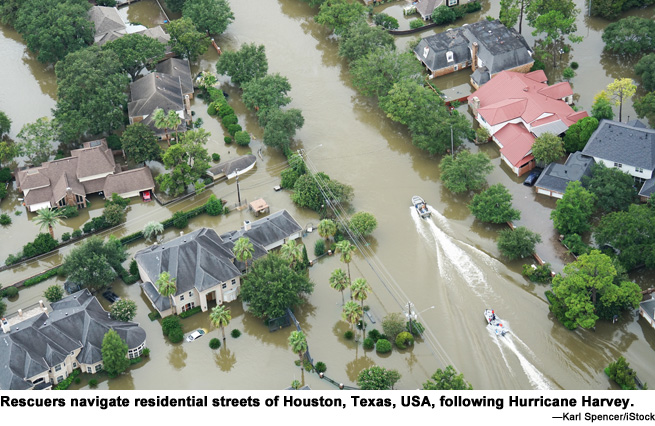 STTI member Rene Steinhauer, a volunteer with Remote Area Medical (RAM), has managed disaster responses that include the Indian Ocean tsunami, Hurricane Katrina, the Haiti earthquake, Typhoon Haiyan in the Philippines, and Ebola in Liberia. Reporting from Texas (USA) where he is managing RAM’s response to Hurricane Harvey, he tells responders what to expect upon arriving in disaster areas.
STTI member Rene Steinhauer, a volunteer with Remote Area Medical (RAM), has managed disaster responses that include the Indian Ocean tsunami, Hurricane Katrina, the Haiti earthquake, Typhoon Haiyan in the Philippines, and Ebola in Liberia. Reporting from Texas (USA) where he is managing RAM’s response to Hurricane Harvey, he tells responders what to expect upon arriving in disaster areas.
I’ve been knee-deep in Hurricane Harvey since before the rain stopped falling. If there is one truth to this event, it is that the response is disorganized. Information about which roads are open and which are flooded is always incorrect. Understanding who is in charge of what rescue operation is misunderstood not only by incoming responders but also by rescuers already on site.
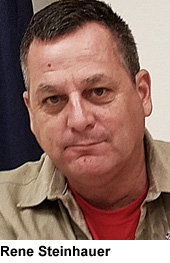 Nurses and other medical professionals are arriving from around the United States to help, and they are dismayed by what they are finding. Some have heard via social media or television that medical support is needed in a location, but when they arrive, no specific need is found. When nurses arrive at a location that does have a medical need, they are frustrated by the lack of coordination. For many nurses, this experience is leaving them with a negative impression of the disaster response and those managing the event.
Nurses and other medical professionals are arriving from around the United States to help, and they are dismayed by what they are finding. Some have heard via social media or television that medical support is needed in a location, but when they arrive, no specific need is found. When nurses arrive at a location that does have a medical need, they are frustrated by the lack of coordination. For many nurses, this experience is leaving them with a negative impression of the disaster response and those managing the event.
It’s important for volunteers arriving in the Hurricane Harvey disaster zone to have realistic expectations. First of all, if volunteers do not experience disorganization, they are not in a disaster. With so many organizations working in multiple locations and using various types of electronic communication, messages sent and received will most certainly be distorted. Furthermore, as waters rise and fall, needs change. Professional media reports may be inaccurate, and social media reports are some of the most unreliable of all. So what should arriving volunteers expect?
What to expect
They should expect complete and total chaos. They should expect to find themselves in the wrong location. They should expect their talents to be underutilized. They should expect to be both physically and mentally exhausted before they even start the job. It’s a disaster. It’s supposed to be this way!
As a volunteer nurse and disaster manager with Remote Area Medical, I have experienced all of this and more in responding to disasters at home and around the world. So why do I subject myself to this? It is because I thrive on the challenge of taking chaos and creating a functional operation. I thrive on working with old friends I’ve worked with before in disaster response and integrating new volunteers into teams that eventually make a difference in the lives of those in need. I enjoy building systems that allow new volunteers to arrive for the post-disaster response and find things no longer disorganized.
It’s rough in the first days of a disaster like Hurricane Harvey, but it’s important for volunteers to stop what they are doing and join us on the front lines. In times like this, most of us want to get involved. I want you to get involved. But I want you to have realistic expectations.
Initial responder or post-disaster responder?
Plan on worst-case scenarios. If you can accept those situations as possibilities in your volunteer service, then jump right in and get wet with the rest of us. For those who prefer less chaos and conditions more like their normal work environment, I recommend volunteering for the post-disaster phase. After a few weeks, the system will be functional again, and there will be fewer surprises for volunteers.
As for me, I thrive on the challenges of the initial response. I know what to expect and accept it. That does not mean I don’t get frustrated or tired. It is not uncommon for me to work below my capabilities. Despite worst-case scenarios, I love to manage the disaster response, and I am always first on scene.
If you want to volunteer, think about where you fit in best (initial response or post-disaster), and find an organization with whom you can volunteer. I look forward to seeing you out here.
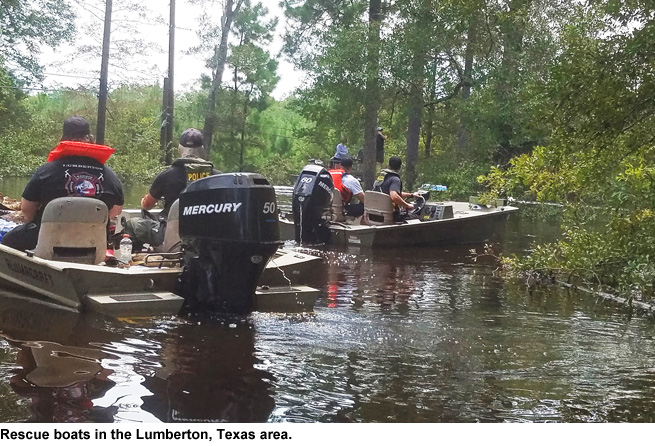
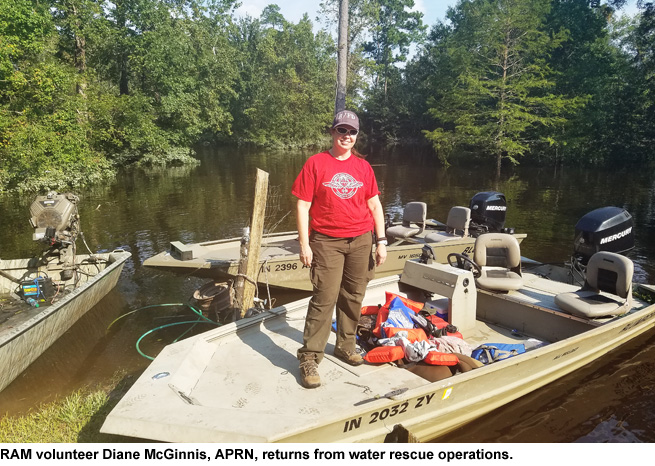
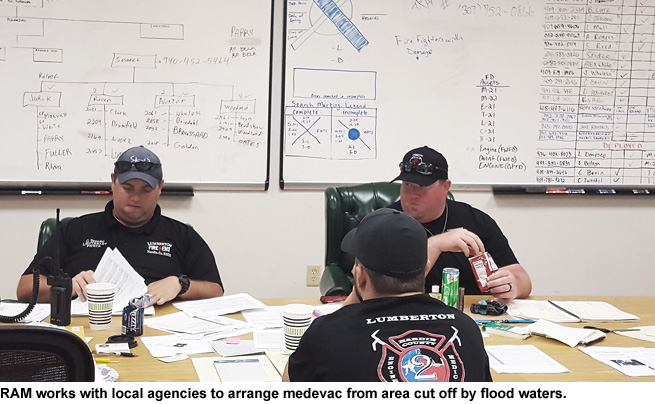
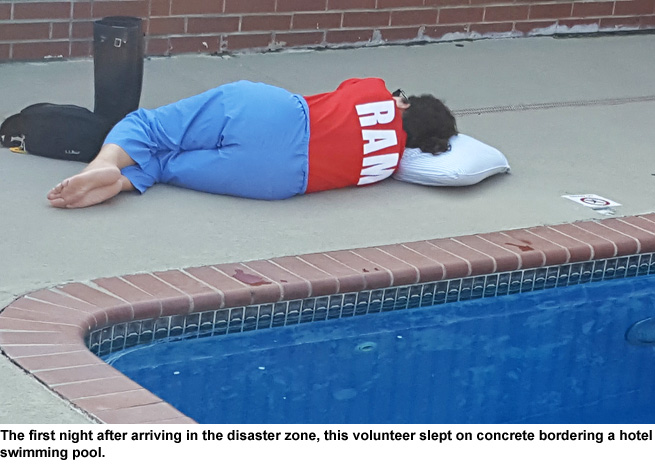 Rene Steinhauer, RN, EMT-P, is a volunteer with Remote Area Medical. He has managed national and international responses to some of the largest disasters of our time, including Hurricane Katrina and the Haiti earthquake. He is currently working as medical incident commander in a rural Texas community devastated by Hurricane Harvey-related floods and cut off from most ground transportation.
Rene Steinhauer, RN, EMT-P, is a volunteer with Remote Area Medical. He has managed national and international responses to some of the largest disasters of our time, including Hurricane Katrina and the Haiti earthquake. He is currently working as medical incident commander in a rural Texas community devastated by Hurricane Harvey-related floods and cut off from most ground transportation.